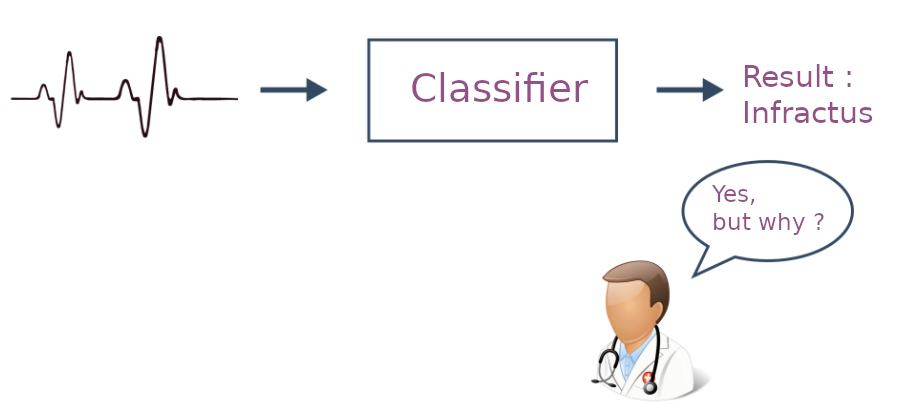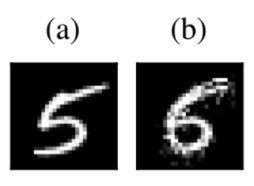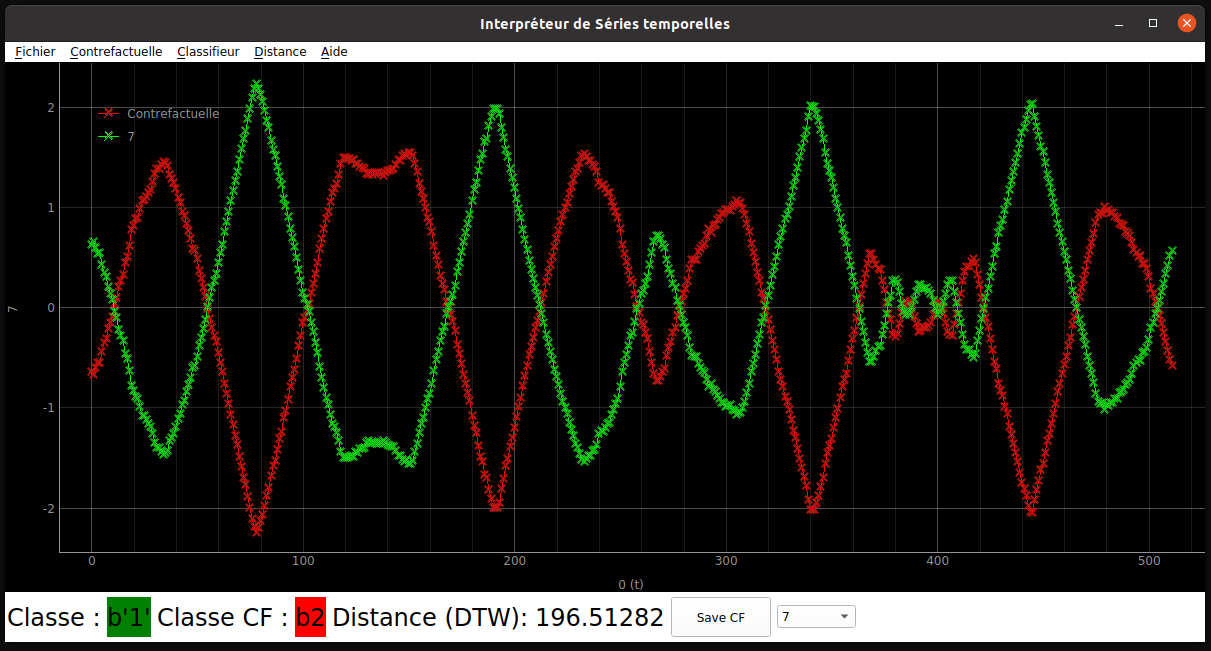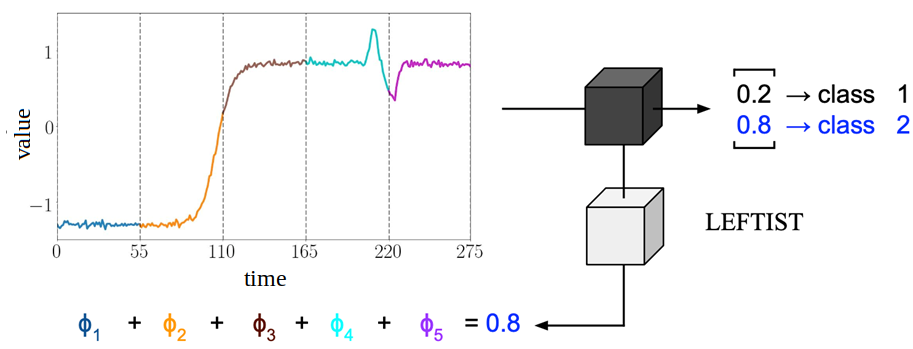- LEFTIST -
Updates and additions
LEFTIST is a tool that allows to explain a time series classification by giving a coefficient to each segment between -1 and 1,
which helps to identify the part(s) of the time series that are most decisive in the choice of classification.
This tool was developed with an old version of python (3.6) and used outdated libraries, which made its use chaotic.
Thus, we updated the tool with python 3.7 and made it easier to use. Moreover, the only segmentation available in LEFTIST was a uniform segmentation
(we cut into n segments of equal size), which is not necessarily relevant.
Therefore, we added two new segmentations SAX and Matrix Profile (which are based on pattern recognition).








.png)
